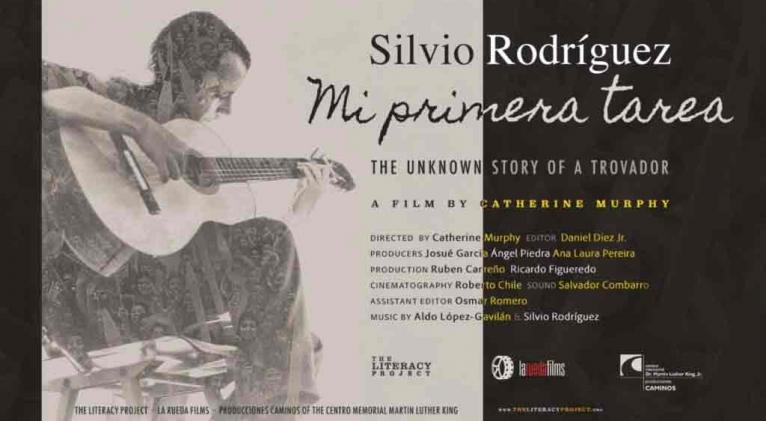US filmmaker Catherine Murphy evoked the conversation with Cuban singer songwriter Silvio Rodriguez for her documentary "My First Task", which was exhibited at the 20th Santiago Alvarez International Festival, which is taking place now.
In those 25 minutes, she explained, the singer narrates his experience at the age of 14, when he got involved in the Literacy Campaign, a gesture that began in 1961 to lead to the educational and cultural transformations of the Cuban Revolution just three years after its triumph.
Murphy thanked Silvio for the morning he generously gave her and his testimony about an endearing page in his life, which moviegoers can appreciate as part of the exhibition presented by the creators of independent cinema in that country.
They are the guests of honor of this 20th edition, with a delegation of more than 30 members and a collection of 14 documentaries, which were watched on March 3, the last day during the inauguration at the Rialto cinema and will be shown until the end of the festival, next Wednesday.
Among the US participants are screenwriters, directors, producers, designers and directors who present a remarkable variety of social and human themes, some of these without a great diffusion in the panorama of US cinema.
On the first day of the meeting, Jim Klein and Julia Reichert’s UnionMaids, a piece that transcends simple feminism to delve into the legitimate aspirations of working women and their organization into unions, was made available to the public.
After a pause of more than two years due to the Covid-19 pandemic, the meeting, dedicated to the memory of Santiago Alvarez, resumes the on-site program and offers several venues to enjoy the genre, from the main ones in the central Rialto hall to those in the towns of El Cobre and El Caney.
Universidad de Oriente, the Macubá theater hall and the Image Museum also host the events, which include lectures and other approaches to the making of documentaries.
Santiago Alvarez, the architect of the ICAIC Newsreels, which were declared Memory of the World by the United Nations Educational, Scientific and Cultural Organization (UNESCO), left behind a vast trajectory that made him transcend in Latin American and world cinema with works that renewed the genre and reflected the palpitating realities of the world.


Deje un comentario